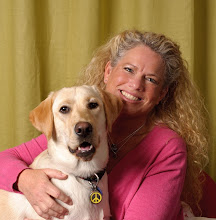
By now everyone knows how dangerous smoking is for you. Even the dangers of second hand smoke to family members, especially children, co-workers, fellow diners, etc., are well known and have resulted in so many laws on the books as to have made smoking in public places virtually impossible. Thank God for that. But there are still far too many people who do not realize the dangers of second hand smoke to their furry and feathered family members-it can and does hurt these animals, often more so than their larger human counterparts.
It isn't just the awful smell in the fur that I notice when a smoker's pet comes in for an exam. They will often have red, irritated eyes, a dingy, dull hair coat, and very often have a cough or other respiratory problems, many times the very reason for the visit in the first place. Dogs who live with smokers are more likely to get nasal and lung cancers than those who live with nonsmokers. Brachycephalic (the flat-faced ones) dogs are at higher risks for breathing issues and lung cancer while longer nosed dogs like greyhounds are predisposed to nasal cancers. Smoker's dogs also scratch and chew at their skin just like allergy dogs do. Indoor cats living with smokers have twice the risk of lymphoma, a deadly cancer, and a higher risk of oral neoplasms. This is probably because the carcinogens settle in their fur and these fastidious groomers lick them off constantly, getting these cancer-causing chemicals in their mouths. We see a much higher incidence of asthmatic and lung inflammation problems in smoker's cats. Birds and small mammals like hamsters and rats are even more vulnerable due to their smaller sizes and higher metabolic rates. They are often sneezing, coughing, have eye problems and feather plucking when sharing the home of smoking humans.
When a critter comes in for a health exam and I notice the tell-tale smell on their fur, I try not to be accusatory or judgemental. I have had my own share of issues and know the smoker likely wants to quit themselves. But I do gently warn them about these dangers of second hand smoke to their pets, and some people are genuinely surprised about it. I do remember one older lady who had smoked for years. When she learned her habit was likely the reason for her little Yorkie's terrible cough, she first strted smoking only outdoors. She was finally able to stop altogether. I was so proud of her! She hadn't been able to do it for herself, but did make the huge change because of her beloved friend.
If you do smoke, be sure to do so away from the area where your animals live. It isn't enough to simply open a window. Smoke outside only, and be sure to tell visitors not to smoke in your home. Never smoke in your car with your dog, even with the windows rolled down. After smoking, be sure to wash your hands before petting or holding your pet. Nicotine can get on your hands and be transferred to your pet's fur. And definitely be sure to keep packs of cigarettes or butts, ashtrays, cigars, nicotine gum or patches or even smokeless tobacco products well away from your dog or puppy. Nicotine in these products is very toxic and could even kill a pet if enough is ingested. Call your veterinarian or poison control if you suspect this has happened.
Smokers know they need to quit, but it sure can be hard. Here is a website for more info about second hand smoke and how to quit:
www.cdc.gov/tobacco
Do it not only for yourself but for the health of your beloved pet. They will breathe easier and thank you for it. And you will certainly live longer-the more time to spend with your pets!
Peace,
DrReneigh

No comments:
Post a Comment